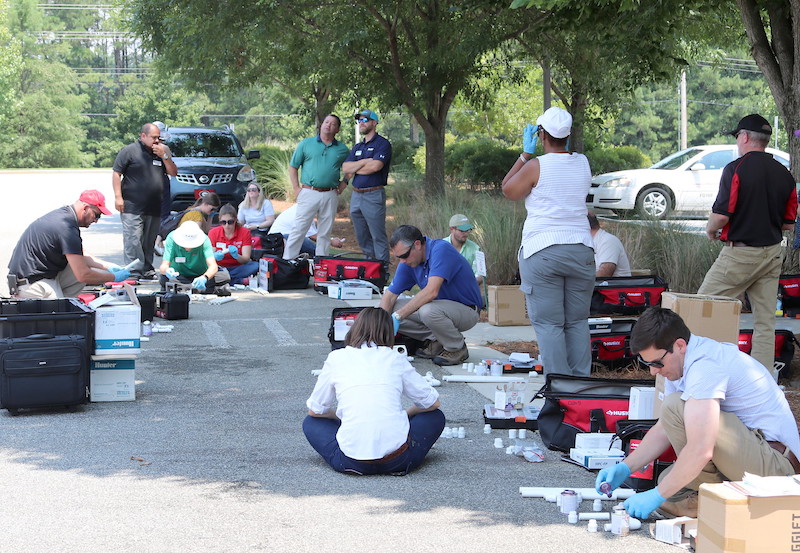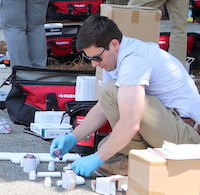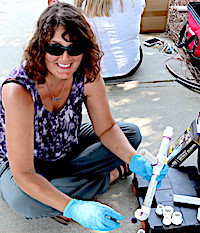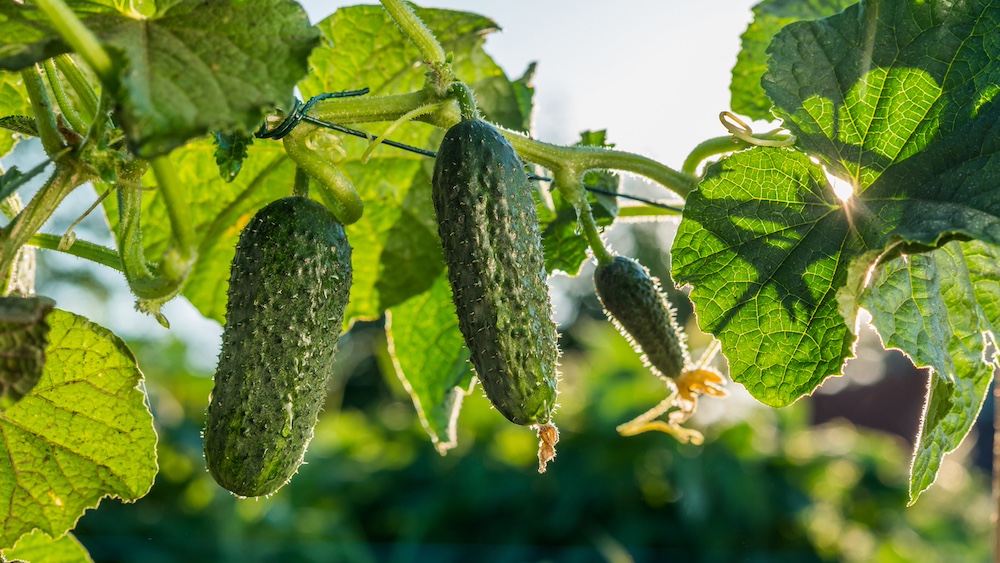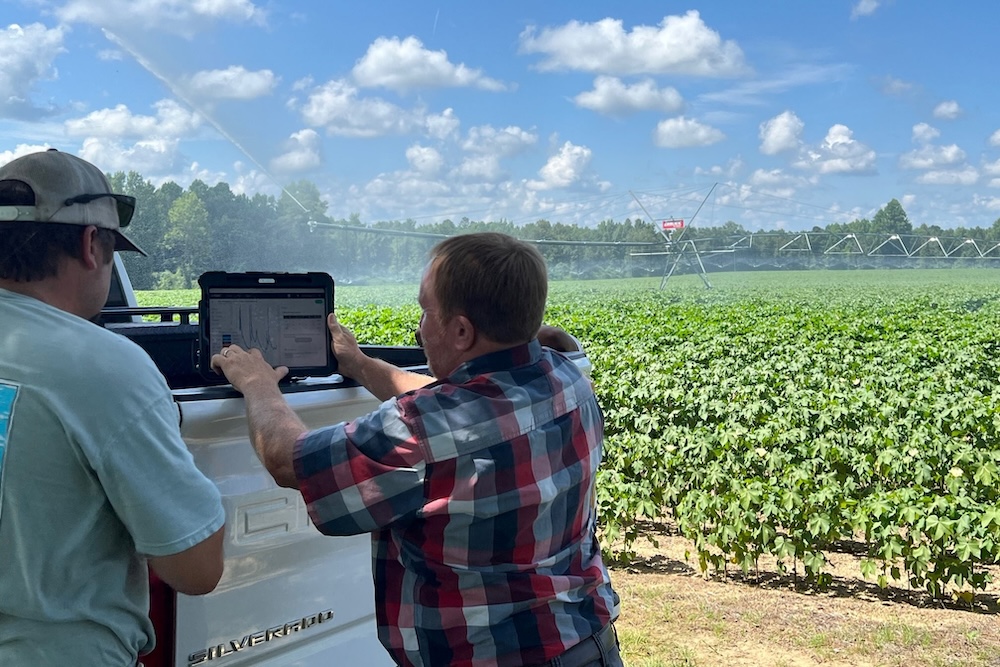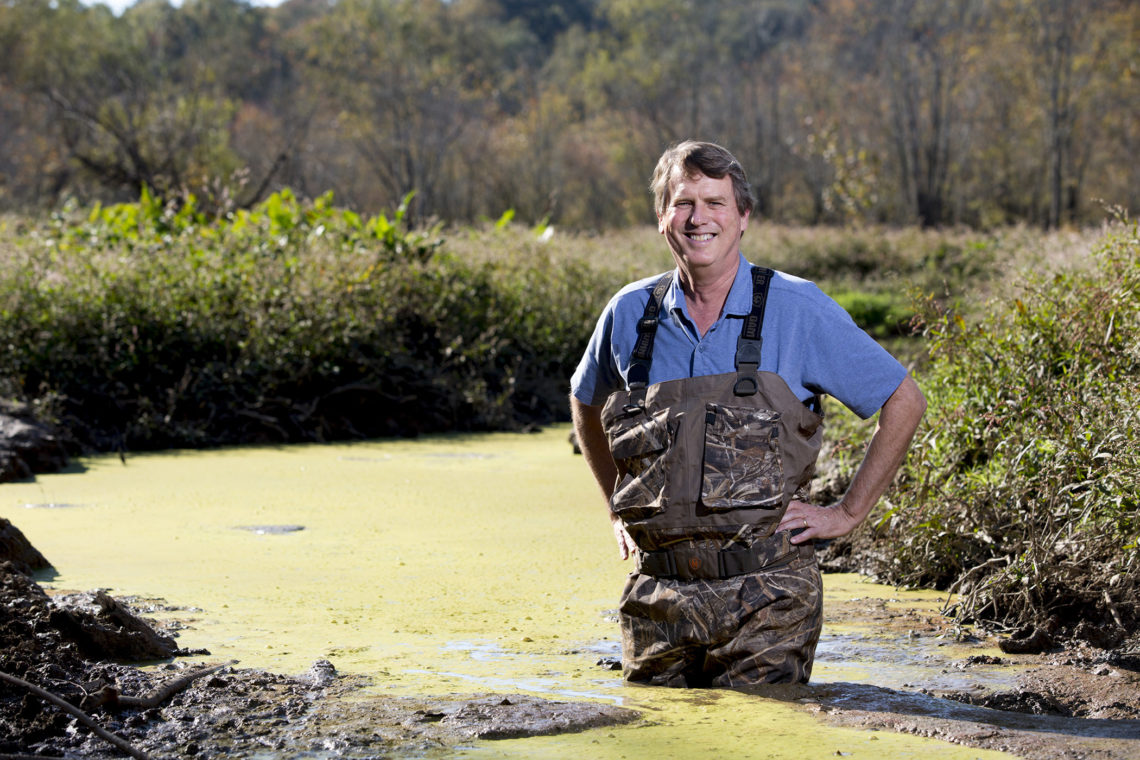Helping farmers use water wisely is part of Extension’s mission. Now, a University of Georgia Cooperative Extension program is helping county agents in urban areas teach their clients how to manage water wisely in the landscape, especially through irrigation systems.
A year ago, UGA Extension Agent Rolando Orellana was named the urban water management agent in the UGA Center for Urban Agriculture on the UGA Griffin campus.
“When I was an agent in Cobb and then Fulton County, irrigation wasn’t something county agents had strong knowledge of,” he said. “In Extension, we work closely with the state’s green industry. When I joined the Center for Urban Agriculture, our team realized this was a big need that should be addressed. Agents need to be prepared to help clients, especially landscapers, use this valuable resource as wisely as possible.”
Orellana formed an advisory committee of industry professionals to get honest input from the industry. The committee agreed that irrigation training for urban landscapers is desperately needed in urban areas.
With $9,800 from an internal UGA Extension Innovation Grant and support from Georgia's green industry, Orellana developed an irrigation training specifically designed to educate UGA Extension agents in urban areas. Using the train-the-trainer model, Orellana aims to “build capacity with the agents so they can help green industry clients and consumers in their counties.”
With advice from irrigation professionals across Georgia, Orellana and his Center for Urban Agriculture colleague Greg Huber compiled tool kits for county agents to use when teaching clients about irrigation usage, management and maintenance. Hunter Industries donated more than $12,000 in irrigation supplies for the kits and helped train the agents, as did representatives from Rain Bird.
“This training and the equipment provided will multiply UGA Extension’s outreach and water education in 18 Georgia counties,” said Huber, who co-taught the workshop.
UGA Extension agents from areas like Atlanta, Athens, Cartersville, Carrollton, Conyers, Lawrenceville, LaGrange and Rome completed the training. They received agent irrigation kits that include fittings and parts for drip and spray irrigation systems, primers, glues, electrical boxes and controllers.
“The county agents need these items to gain a basic understanding of how an irrigation system works so that, when a client comes in, they have an understanding of how the system is laid out,” Orellana said. “We taught the UGA county agents a hands-on lesson on how an irrigation system is installed, operated and maintained.”
The agents also reviewed basic watering principles for use in urban landscapes and learned about irrigation systems, including rotors, fixed sprays and drip irrigation. They also reviewed Georgia’s Water Stewardship Act and the state’s rules and regulations surrounding water usage.
“In addition to irrigation system management, the agents were taught a refresher on the relationship between water management and disease management,” he said.
John Watson, the owner of All About Irrigation and a member of the Georgia Green Industry Association board, shared his expertise with the agents. Watson spends much of his time repairing home irrigation systems.
“Pressure regulation is essential to the success of an irrigation system,” he said. “Most systems run way out of their pressure zone and this probably cuts off half of the life of the system. If the pressure is too high, it will cause a lot of destruction.”
The agents will now teach workshops to golf course managers, sports field managers, landscape installers, landscape managers, groundskeepers, garden curators and others. They are also training their Master Gardener Extension Volunteer force to lead irrigation usage workshops.
Keith Mickler, the UGA Extension agent and county coordinator in Floyd County, sees the training as a way to update his skills on the latest technologies available in the field of irrigation and shares that information with his clients.
In Cherokee County, UGA Extension agent Josh Fuder has already planned an industry-focused irrigation management workshop.
“I think this is a great project. These Extension special grant programs provide agents like me with a ready-made program and all the materials we need to present hands-on trainings,” Fuder said.
Reid Garner, Southeast sales manager for Hunter Industries, sees the workshops as way to promote the water-saving technologies available to the industry.
“(The biggest problem) is a lack of education of proper irrigation practices and a lack of knowledge of the technologies that are available to save water,” Garner said. “I think a lot of water is wasted when people set their irrigation and forget it instead of watering based on actual plant needs.”
In the future, Orellana hopes to install an irrigation system demonstration and research site on the UGA Griffin campus.
“It is only natural to start building the skills our county agents need to help our clients in the best way we can,” said Orellana. “And, a demonstration site will allow people to see a few of the different systems in action.”
Orellana would also like to see rain sensors installed on UGA-Griffin’s irrigation systems to help reduce water usage on the campus.

